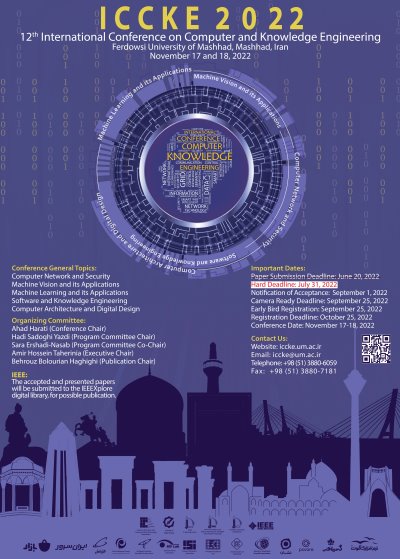0% Complete

Authors :
Keywords :
Abstract :
List of archived papers
Shaghayegh Hosseinpour - Mohammad Reza Keyvanpour
Siavash Zaravashan - Sajjad Torabi - Hesam Zaravashan
Zahra Bakhshandeh - Morteza Keshtkaran
Melika Zare - Sattar Hashemi
Ahmadreza Montazerolghaem - Maryam Khosravi - Fatemeh Rezaee
Ervin Gubin Moung - Toh Sin Tong - Maisarah Mohd Sufian - Valentino Liaw - Ali Farzamnia - Farashazillah Yahya
Moein Sartakhti.salimi@gmail.com - Mohammad Javad Maleki Kahaki - Ahmad Yoosofan - Seyyed Vahid Moravvej
Babak Goodarzi - Reza Javidan - Mohammad Sadegh Rezaei
Behdad Sadeghian Pour - Hamidreza Mohammadi Jozani - Shahriar Baradaran Shokouhi
Mahmoud Naghibzadeh - Samira Babaei - Behshid Behkmal - Mojtaba Hatami




